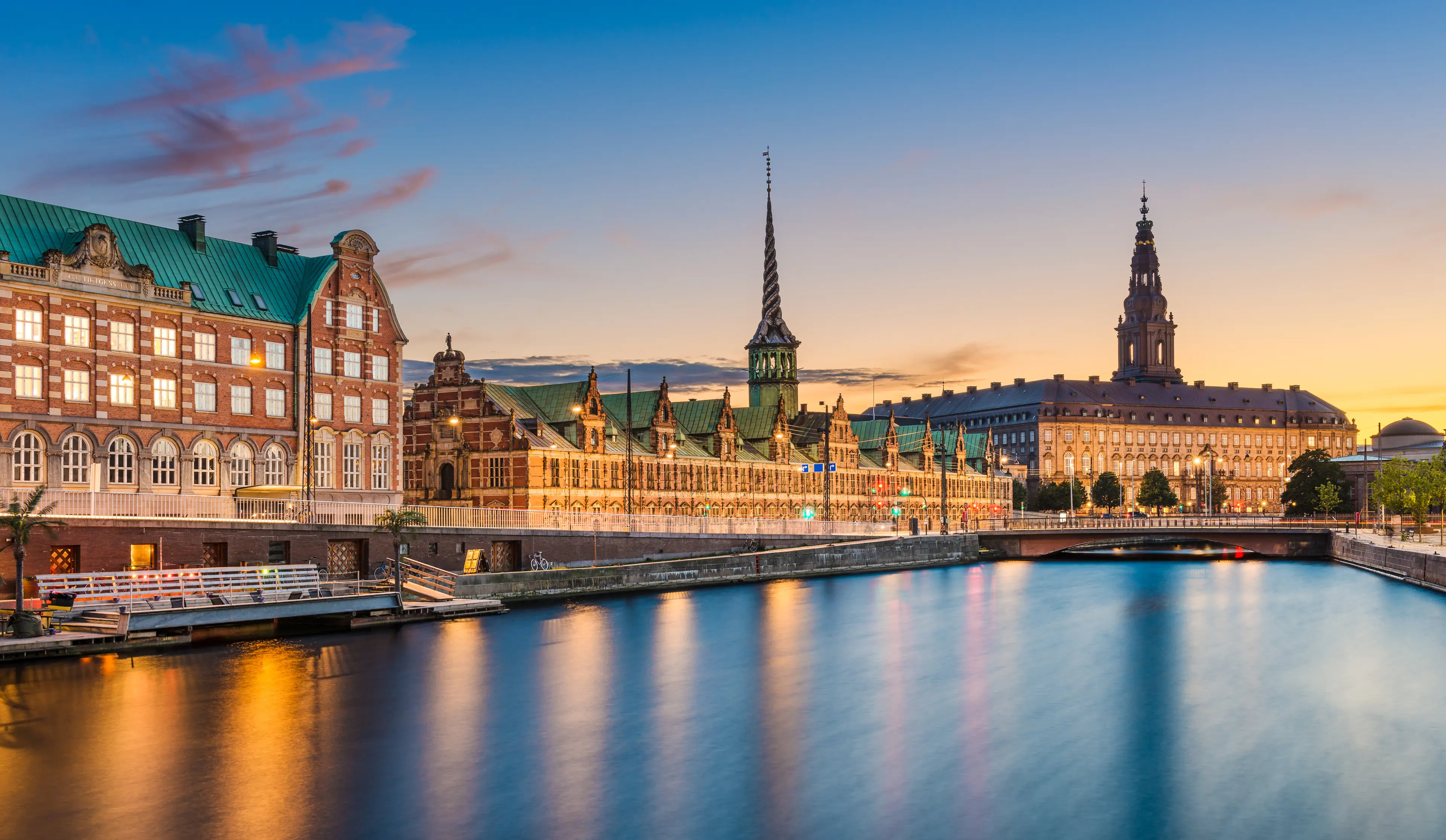Couples 2-Day Local Food, Wine and Shopping Tour in Copenhagen
Copenhagen, Denmark
2 days
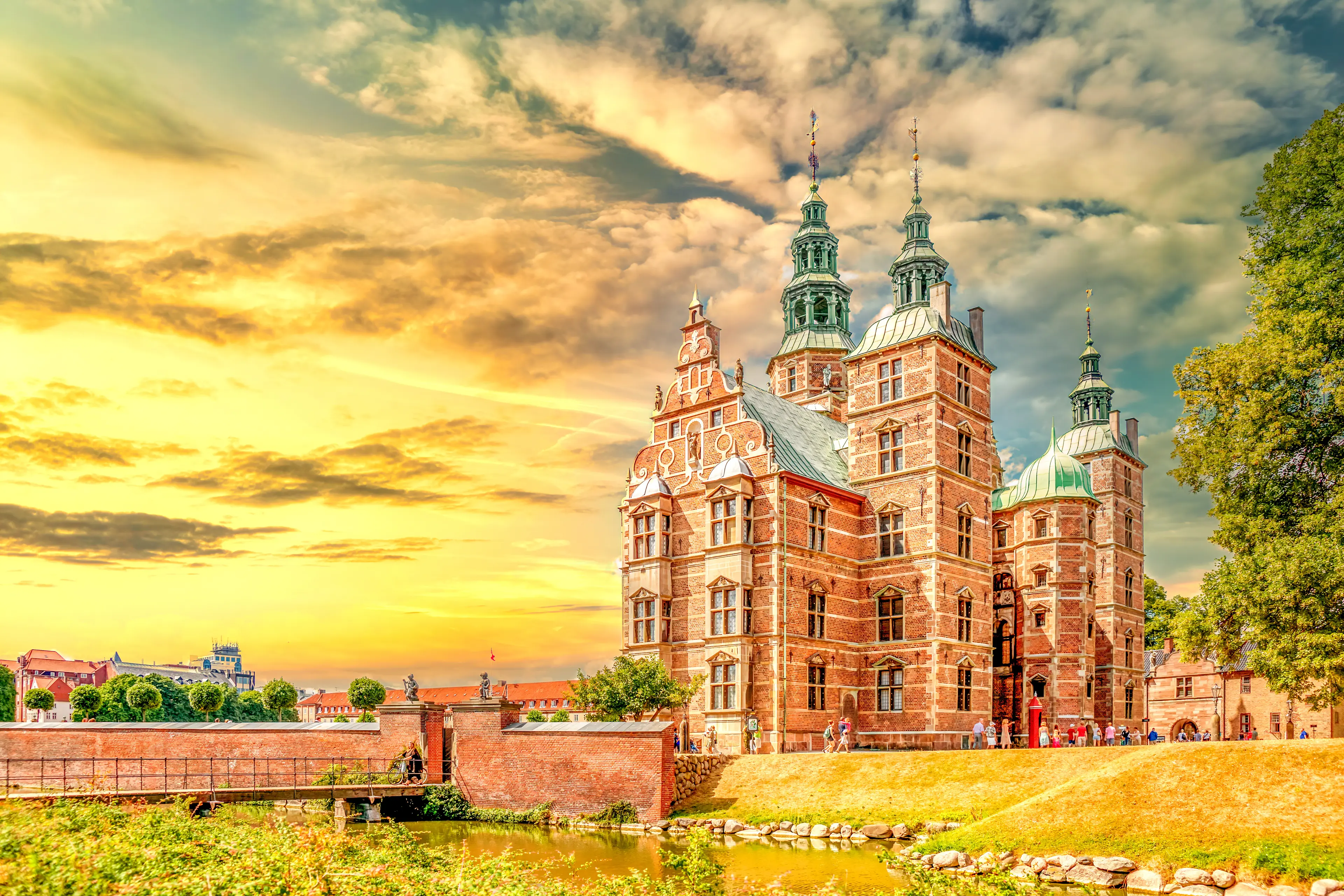
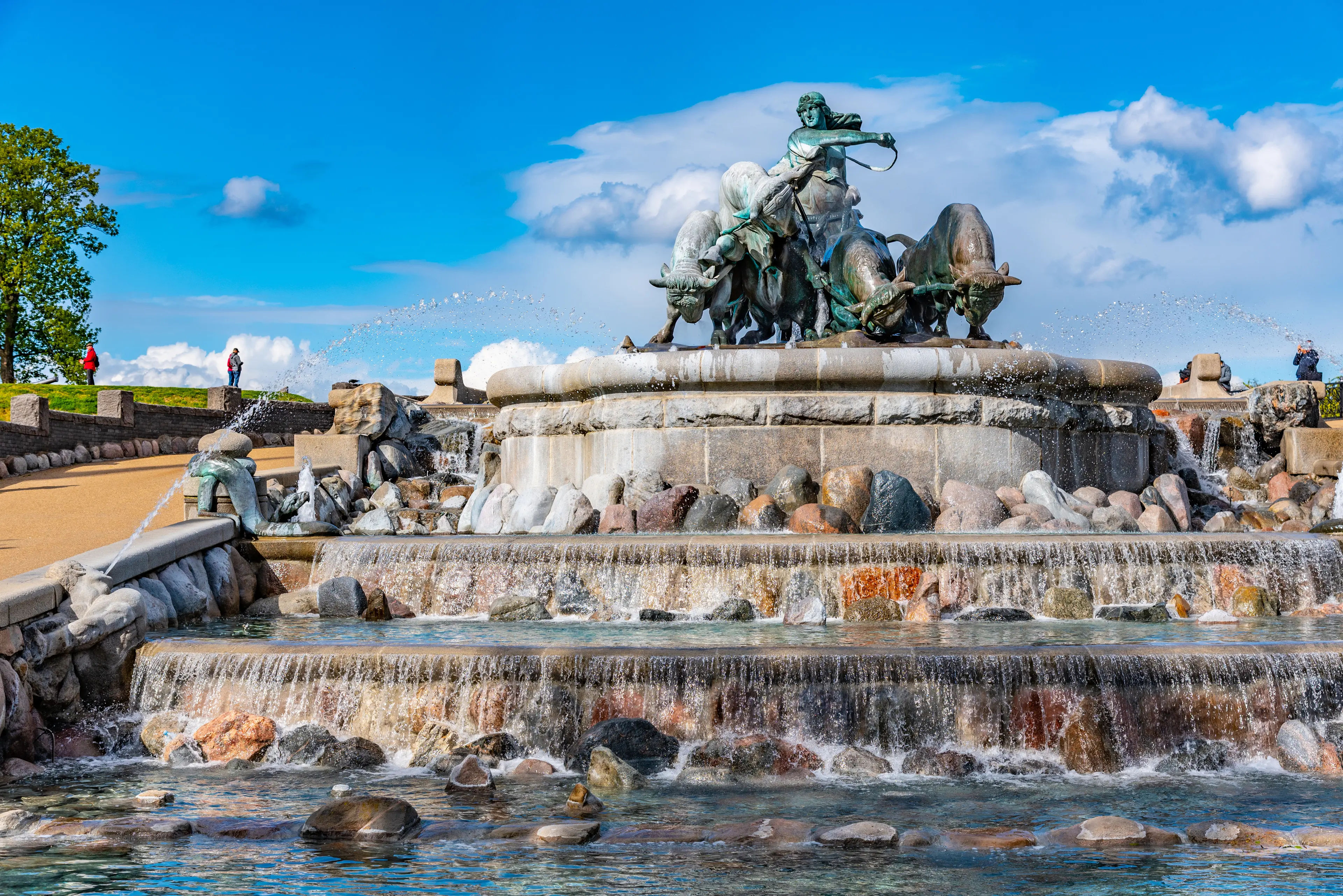
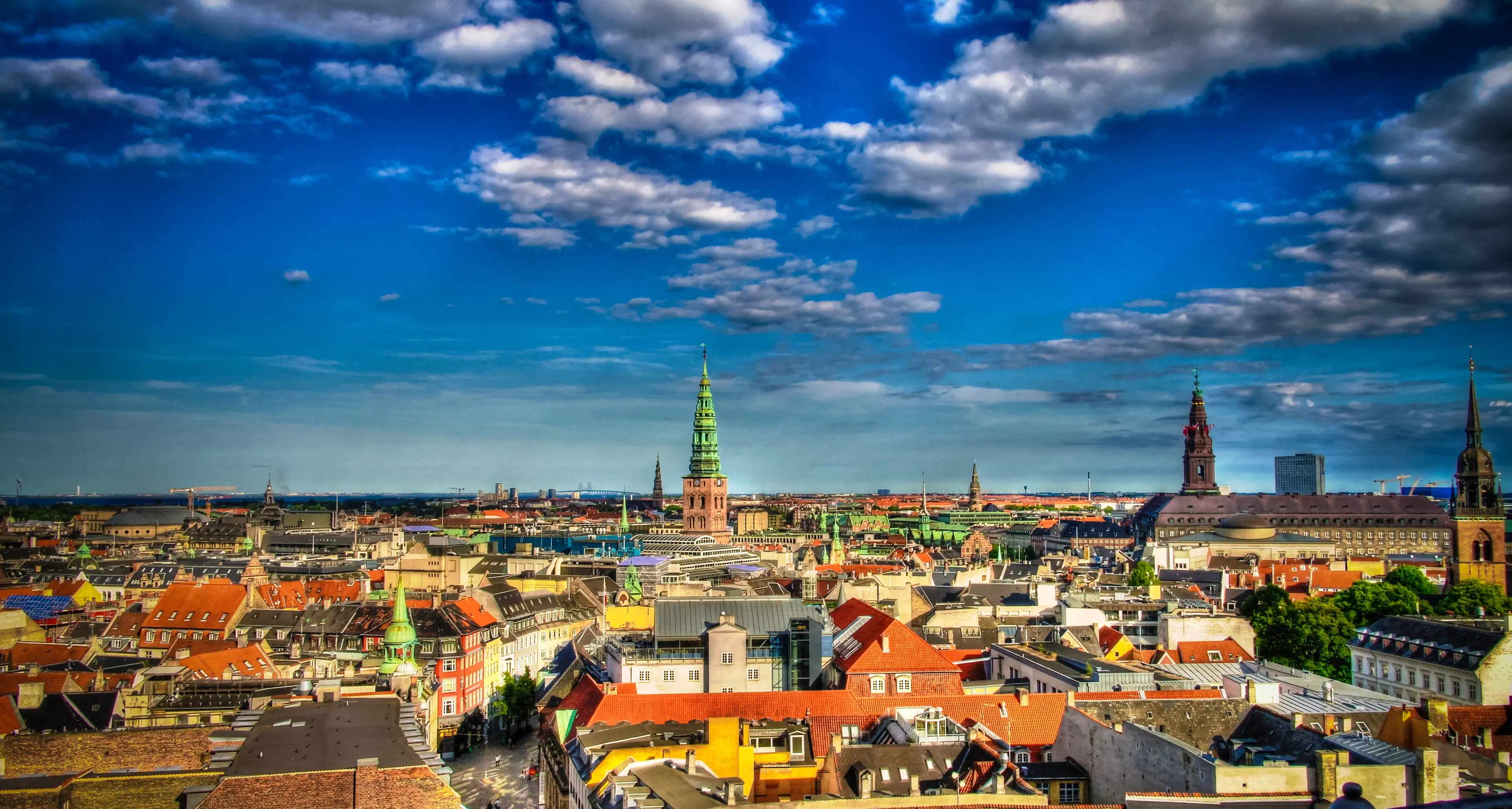
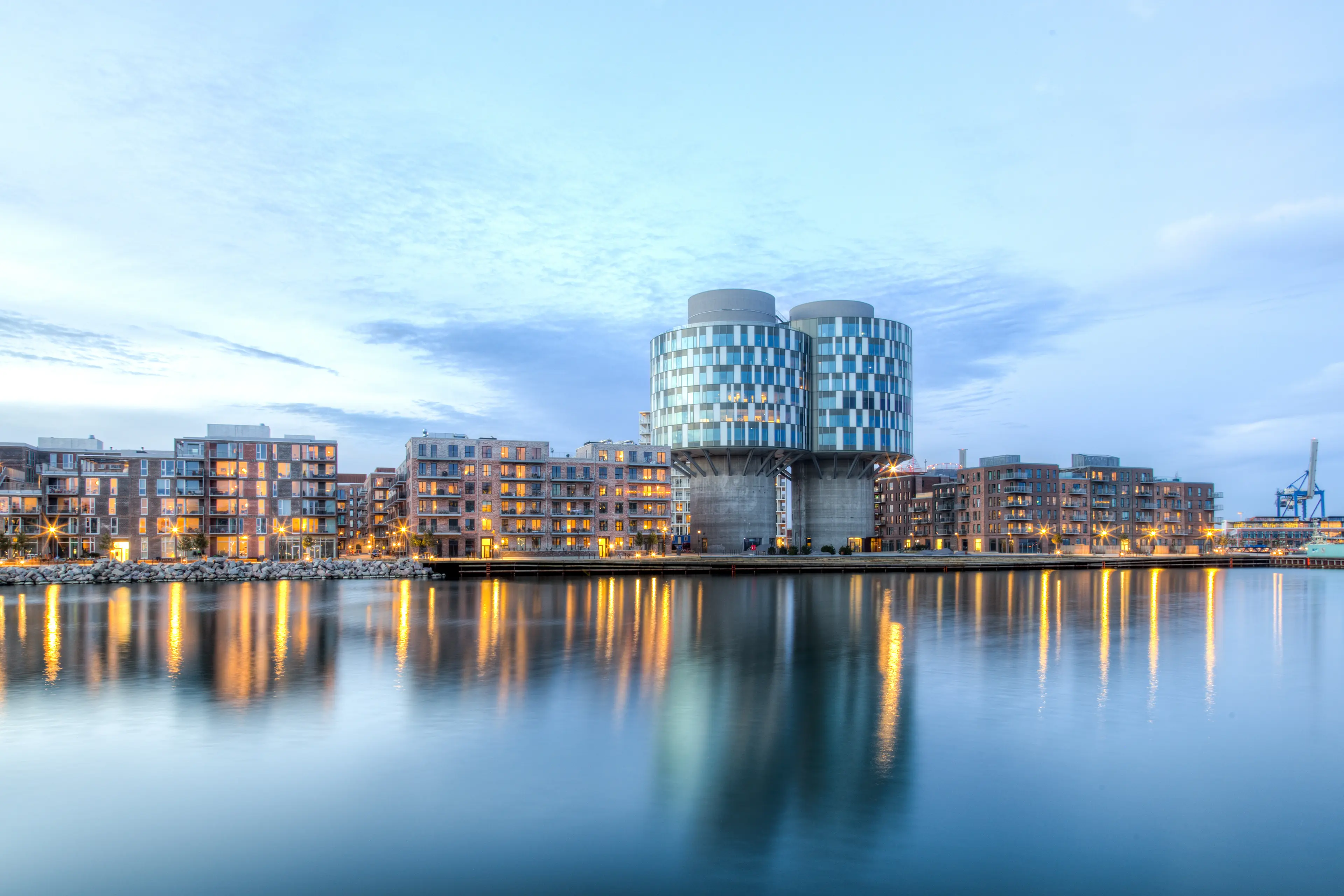
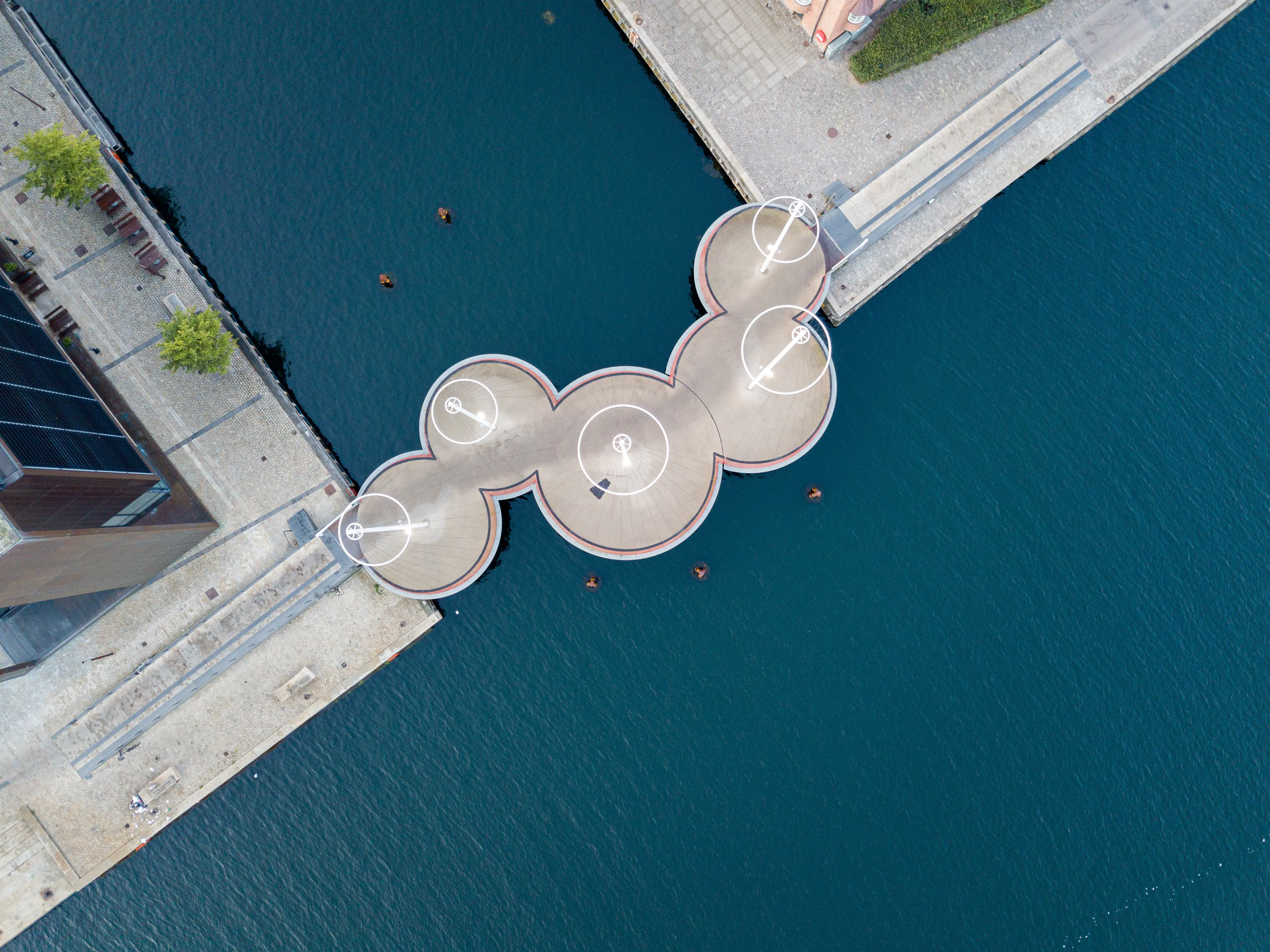
About Copenhagen, Denmark
Discover the charm of Copenhagen, Denmark's vibrant capital city. This Scandinavian gem is a blend of modern design and historic tradition, with colorful waterfronts, grand palaces, and cobbled squares. Explore the iconic Little Mermaid statue, the enchanting Tivoli Gardens, and the 17th-century Nyhavn harbor. Visit the impressive Amalienborg Palace, home to the Danish royal family, or immerse yourself in history at the National Museum of Denmark. Copenhagen is also a culinary hotspot, boasting 15 Michelin-starred restaurants, including the world-renowned Noma. The city is renowned for its commitment to sustainability, with many locals commuting by bike. Whether you're a history buff, foodie, or design enthusiast, Copenhagen offers a unique and unforgettable experience.
2-Day Itinerary
Day 2
Visiting Iconic Landmarks and Enjoying the Nightlife at Tivoli Gardens
Morning
Begin your second day with a visit to the iconic Little Mermaid statue and the nearby Kastellet, a well-preserved star-shaped fortress. Enjoy the serene atmosphere and beautiful views.
Lunch
Enjoy a leisurely lunch at a restaurant in the trendy Nørrebro district. This area is known for its diverse food scene, so you can find everything from traditional Danish cuisine to international dishes.
Afternoon
Spend your afternoon exploring the Royal Danish Opera House and the surrounding area. The building itself is a masterpiece of modern architecture, and the views of the harbor are stunning.
Dinner
For your final dinner in Copenhagen, visit a restaurant in the historic Nyhavn district. Enjoy a delicious meal while overlooking the beautiful canal.
Evening
Finish your trip with a visit to Tivoli Gardens, a historic amusement park in the heart of the city. Enjoy the magical atmosphere, beautiful gardens, and thrilling rides.
Attractions in Itinerary (8)

1City Center
The heart of Copenhagen, filled with shops, restaurants, and historic landmarks.

2Strøget
One of Europe's longest pedestrian streets with a wealth of shops, from budget-friendly chains to some of the world's most expensive brands.

3Vesterbro
A hip neighborhood known for its nightlife, restaurants, and indie shopping scene.

4Nyhavn
A 17th-century waterfront, canal and entertainment district.

5Little Mermaid statue
The iconic bronze statue depicting Hans Christian Andersen's fairytale figure, located on the Langelinie promenade.
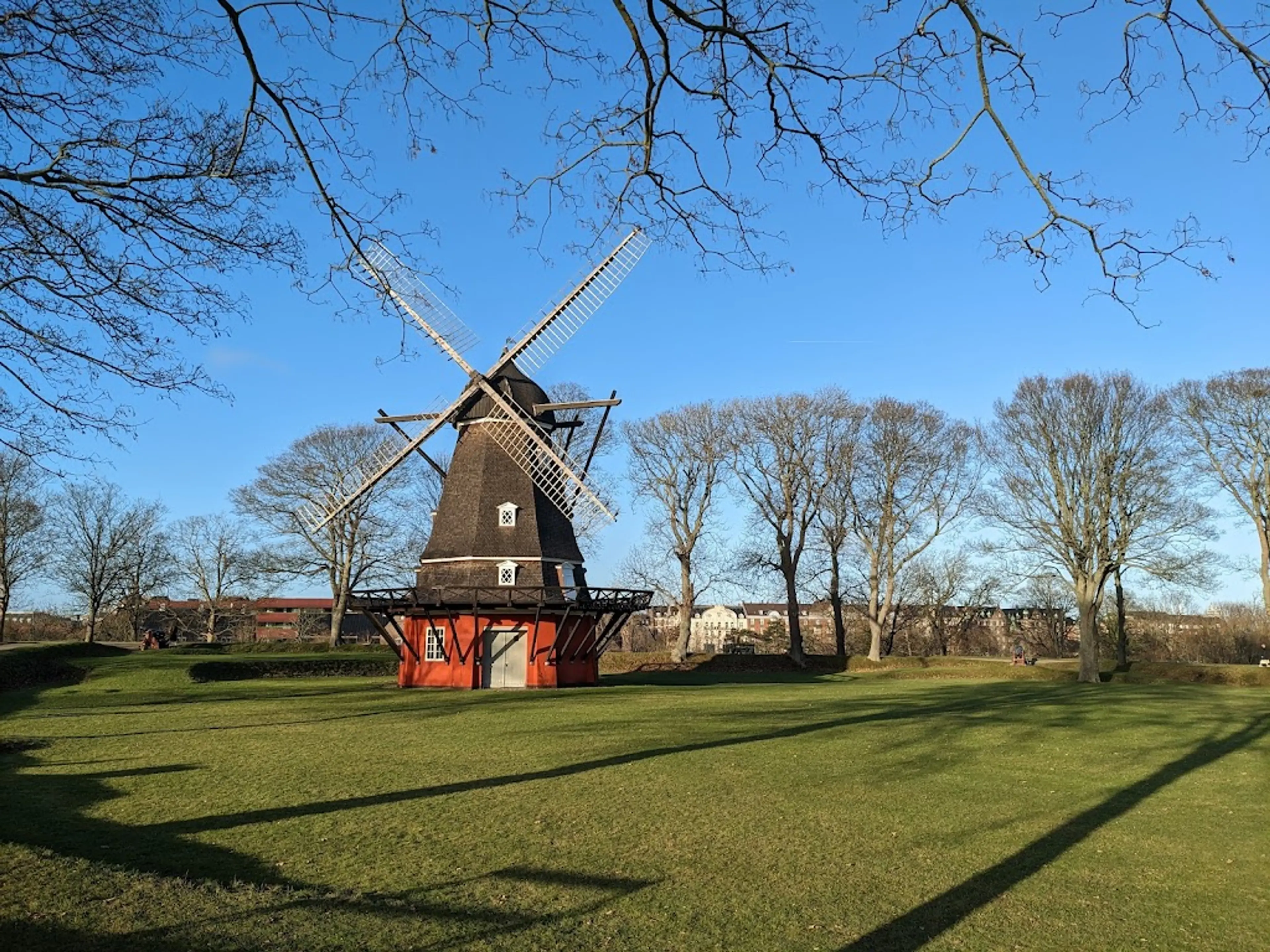
6Kastellet
One of the best preserved star fortresses in Northern Europe. It is constructed in the form of a pentagram with bastions at its corners.

7Royal Danish Opera House
One of the most modern opera houses in the world, offering a variety of performances.

8Tivoli Gardens
A famous amusement park and pleasure garden in Copenhagen.
Local Food and Drinks (12)
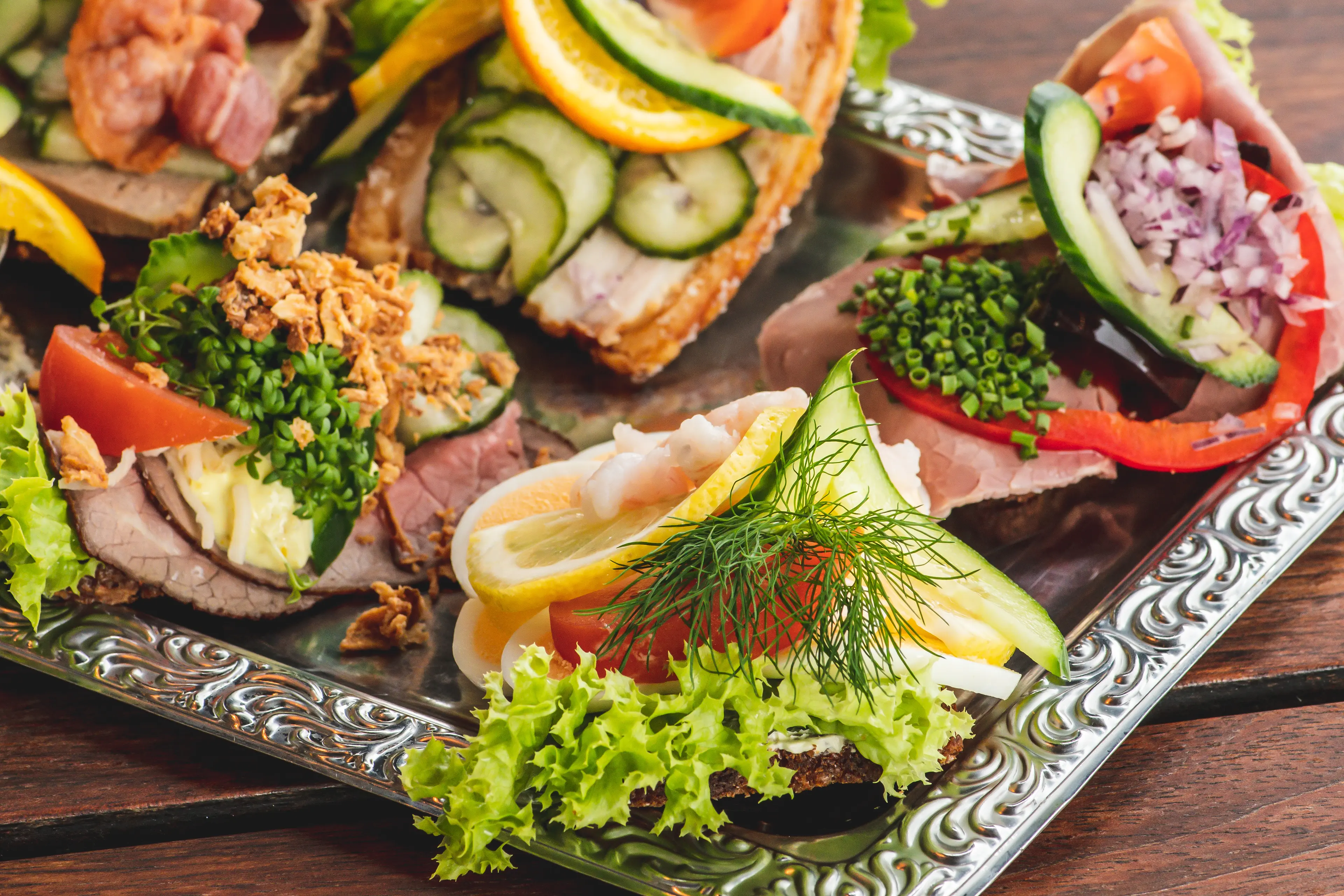
Smørrebrød
A traditional Danish open-faced sandwich, typically made with rye bread and various toppings like cold cuts, fish, cheese, and spreads. It's a staple food in Copenhagen.
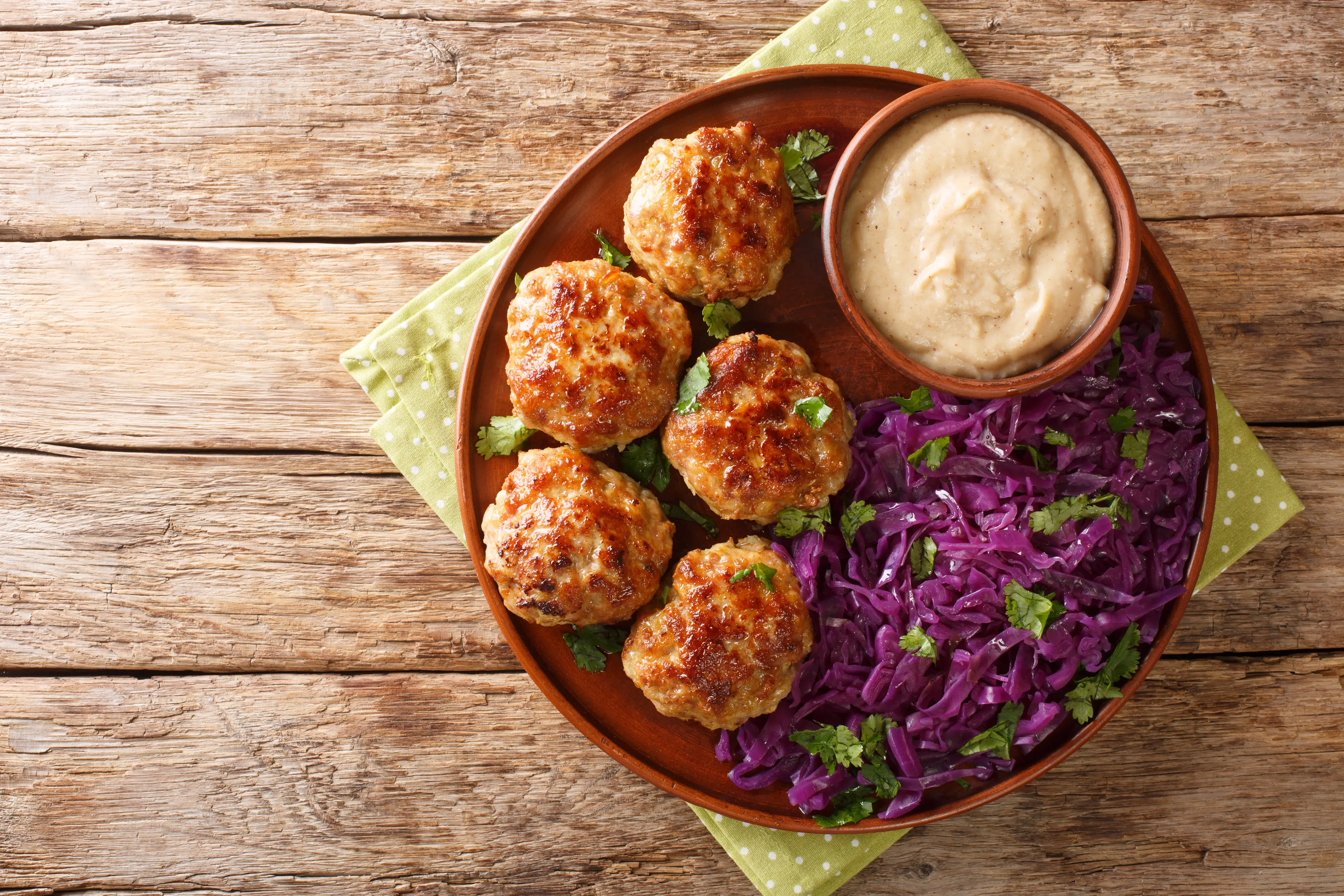
Frikadeller
Danish meatballs made from minced meat, onions, eggs, milk, and bread crumbs. They are a popular dinner dish in Copenhagen.
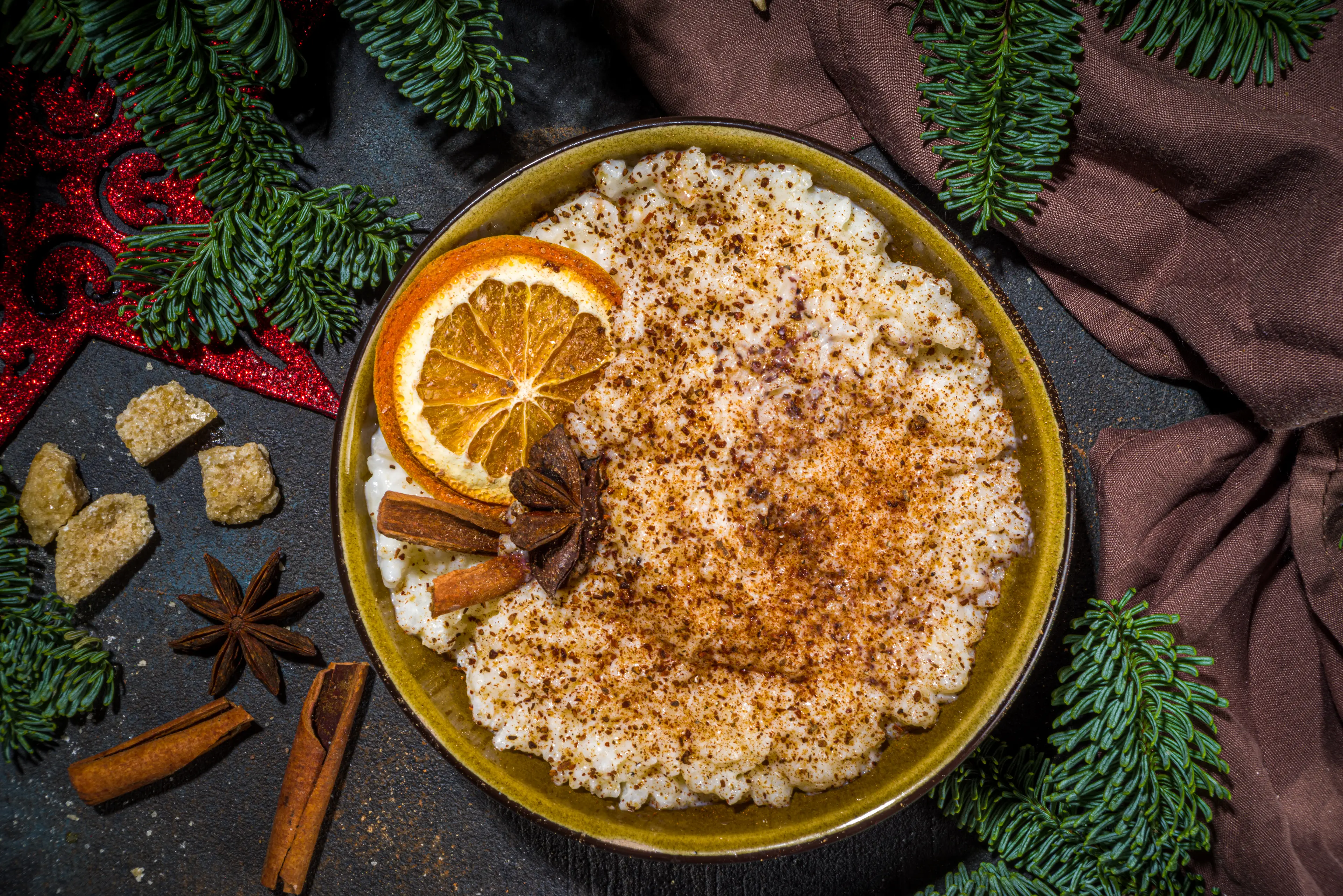
Grød
A traditional Danish porridge made from oats or rice. It's a common breakfast food in Copenhagen.
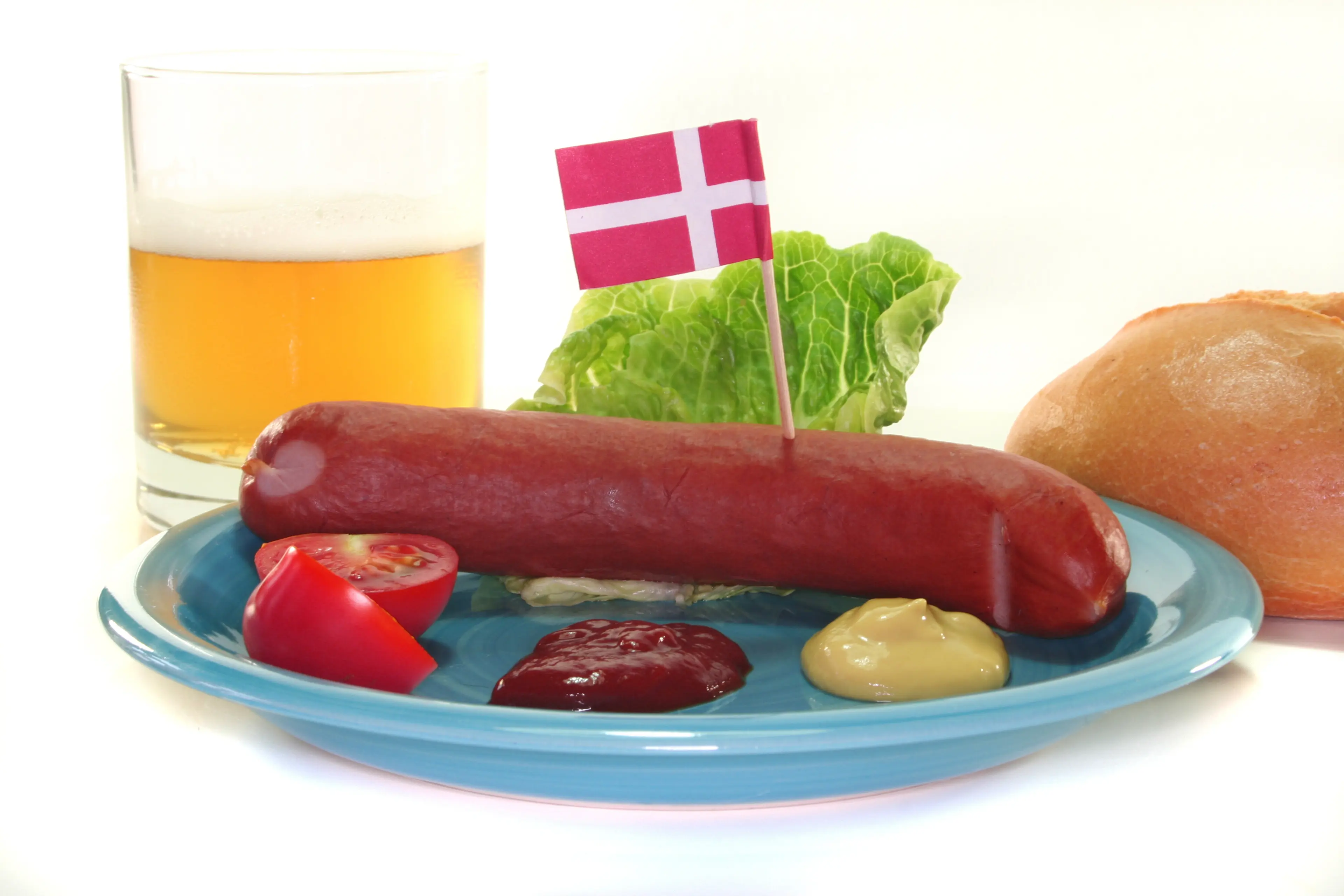
Rød Pølse
A red-colored hot dog that is a popular street food in Copenhagen. It's typically served with bread, ketchup, mustard, remoulade, and crispy fried onions.
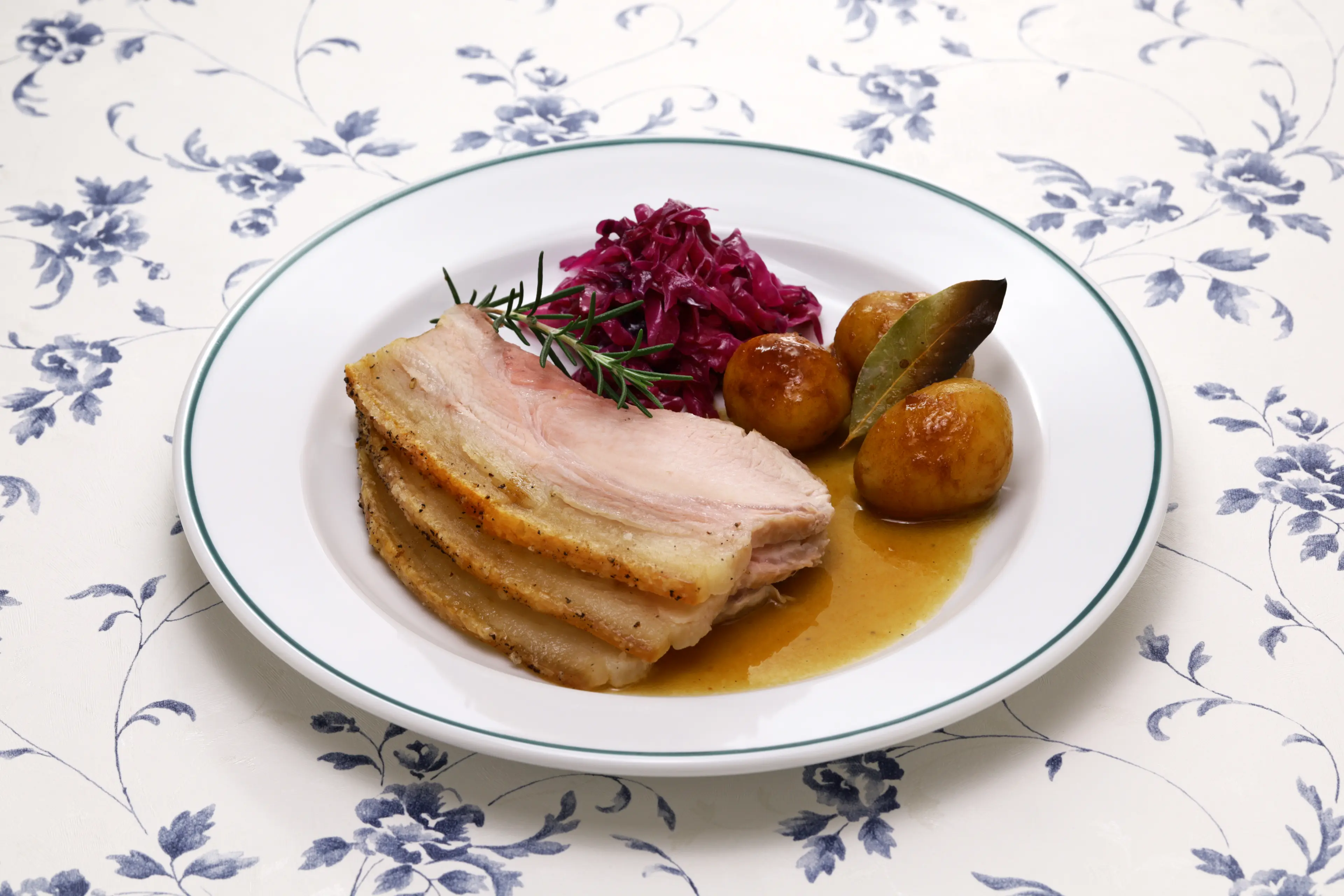
Flæskesteg
Denmark's national dish, a roast pork with crispy crackling. It's a common dinner dish in Copenhagen, especially during Christmas.
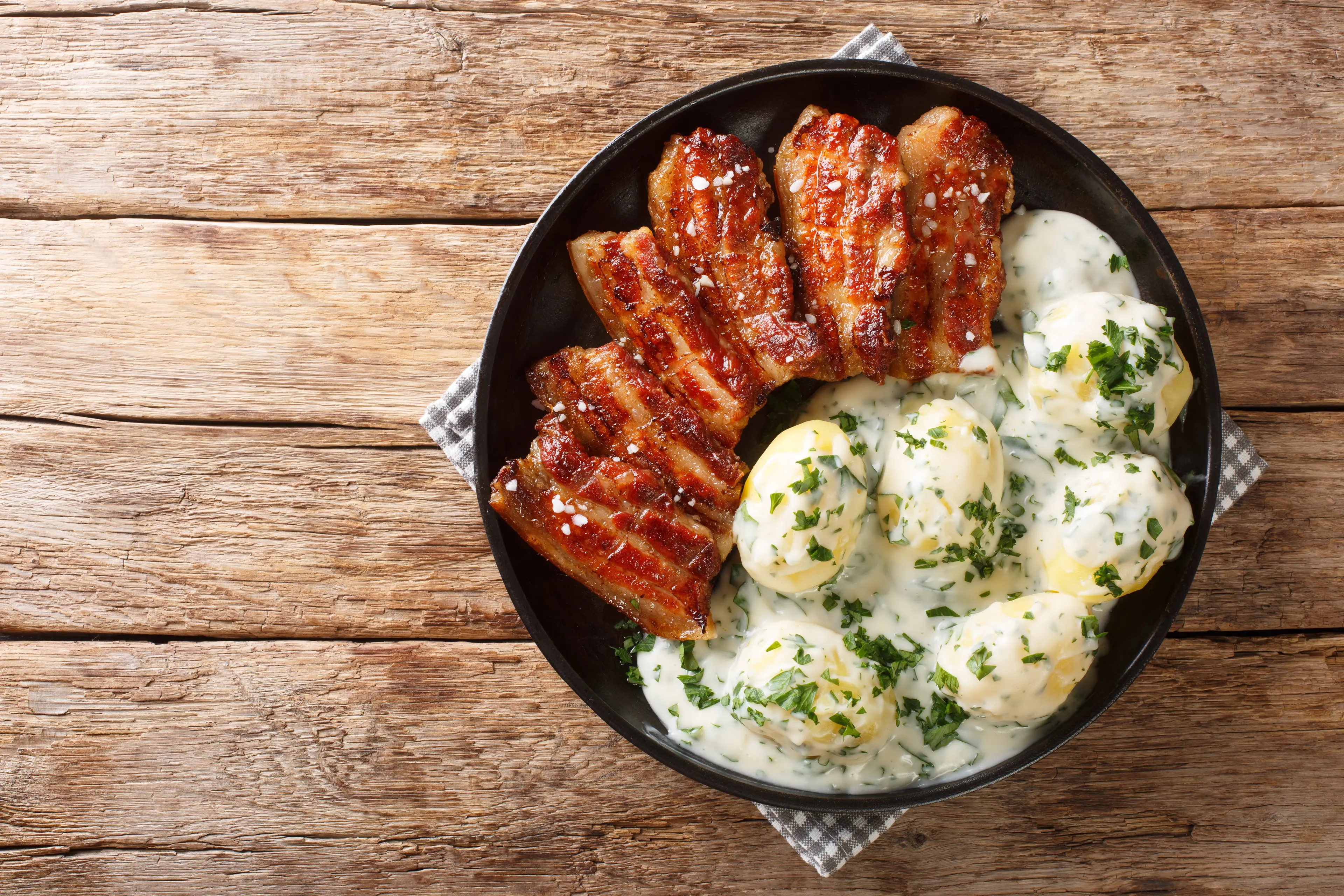
Stegt Flæsk
Fried pork belly served with potatoes and a parsley sauce. It's a traditional Danish dish often enjoyed for dinner in Copenhagen.
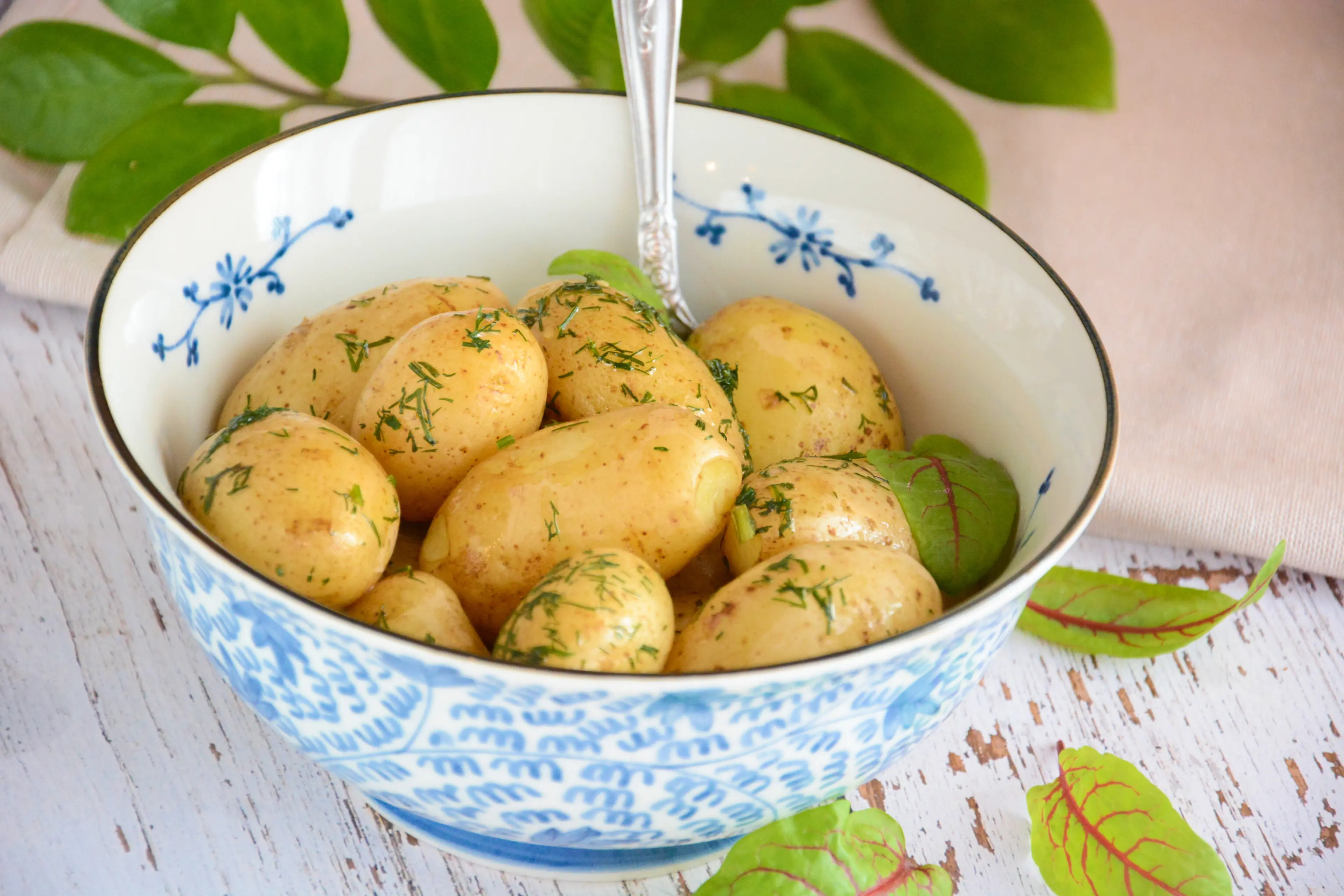
Kartofler
Boiled or roasted potatoes, often served as a side dish with meat in Copenhagen.
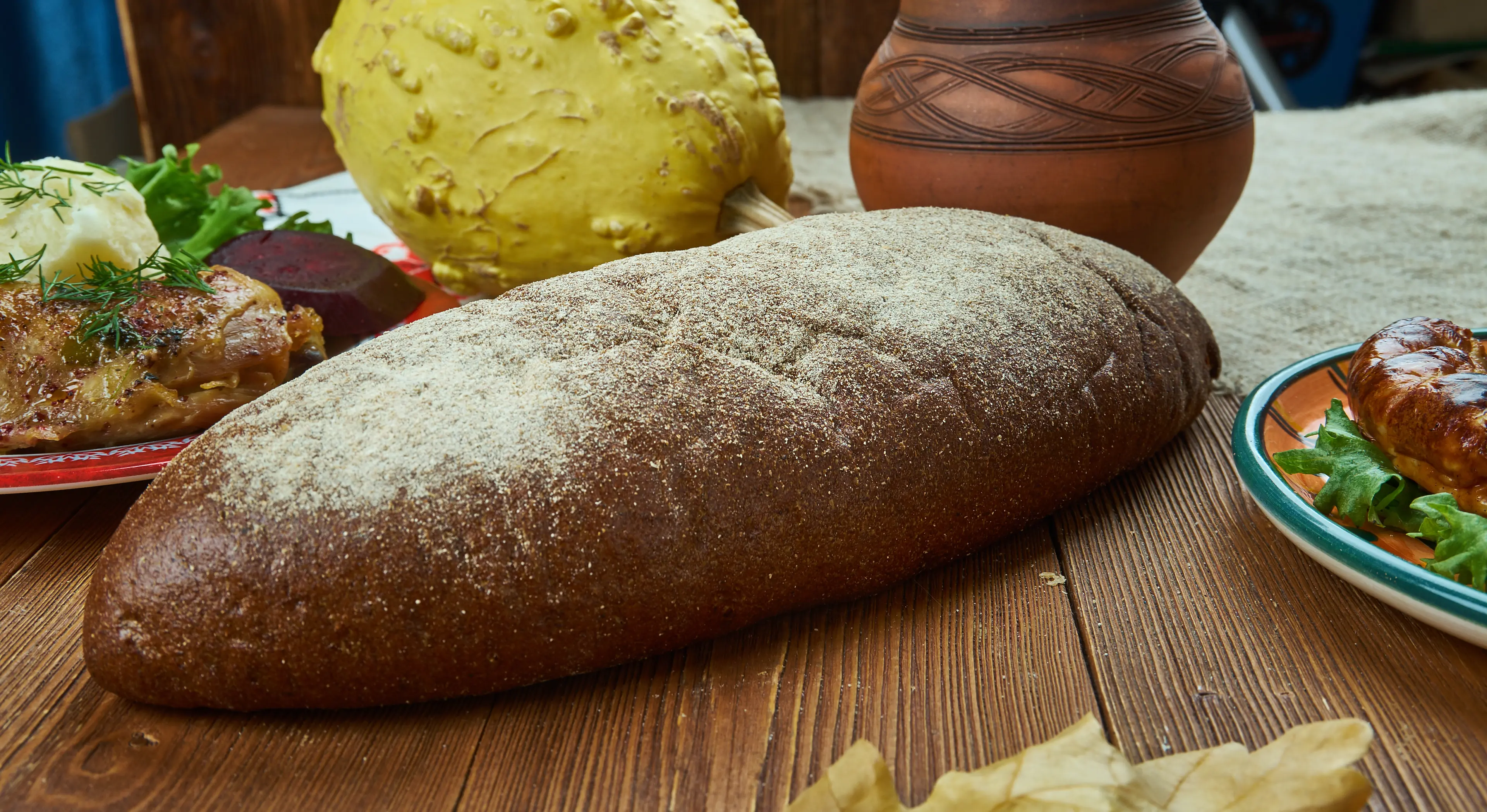
Rugbrød
A dense, dark, and slightly sour rye bread that is a staple in Copenhagen. It's often used as the base for Smørrebrød.

Wienerbrød
A Danish pastry, also known as a 'Danish', is a sweet pastry that is a popular treat in Copenhagen.
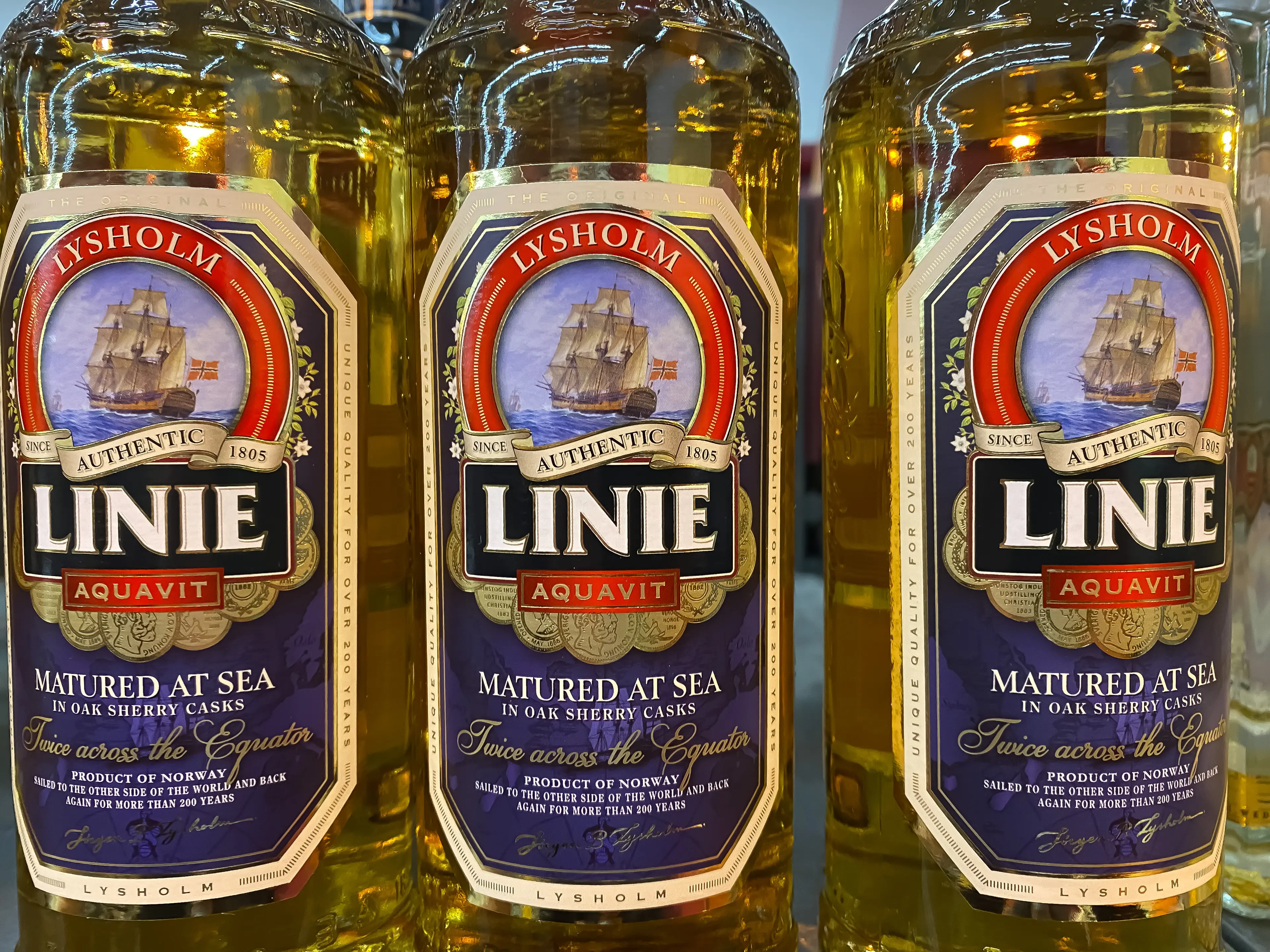
Akvavit
A traditional Danish spirit made from grain or potatoes and flavoured with herbs. It's often enjoyed during festive occasions in Copenhagen.
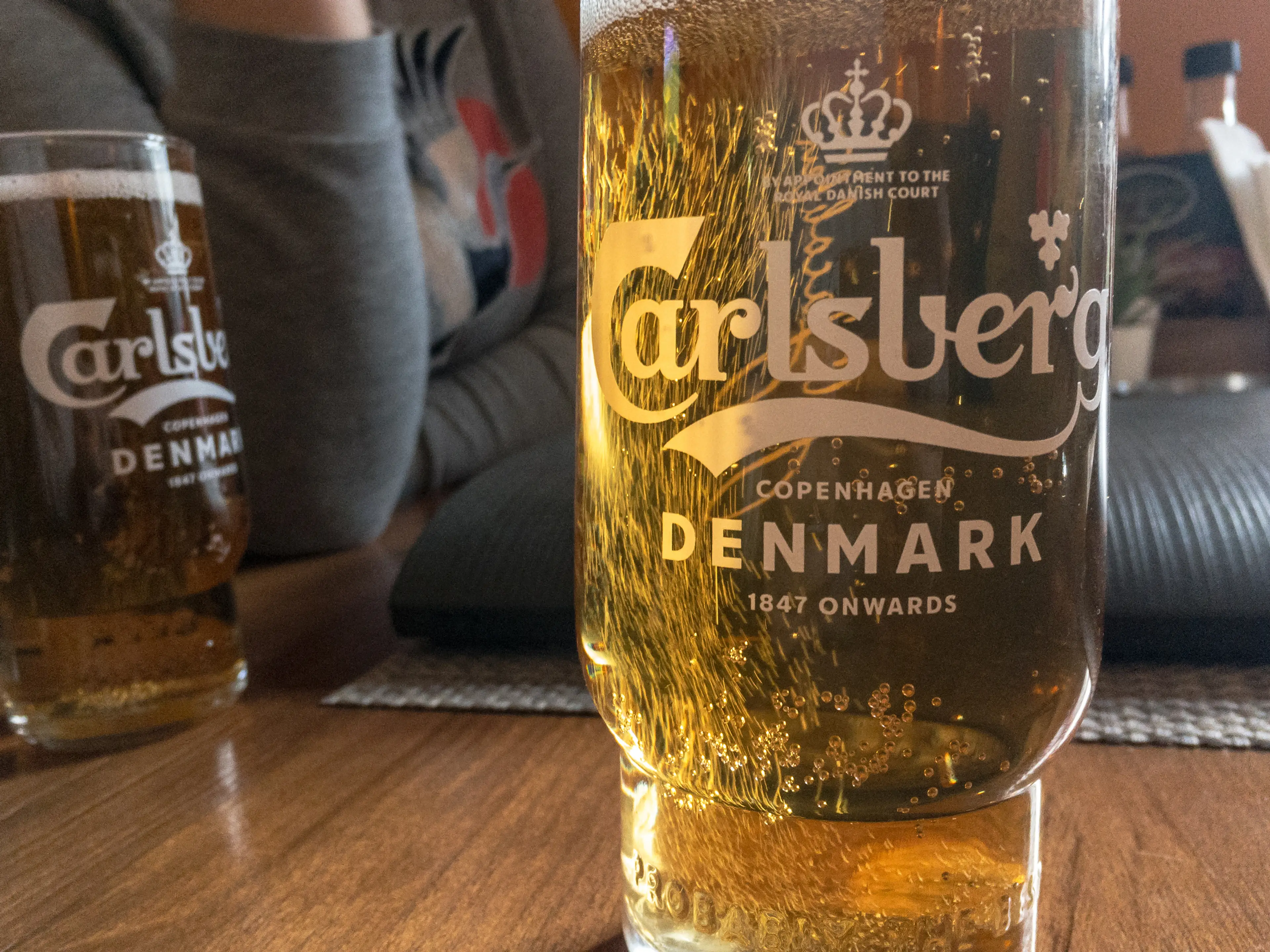
Carlsberg
A famous Danish beer brewed in Copenhagen. It's a popular drink among locals and tourists alike.
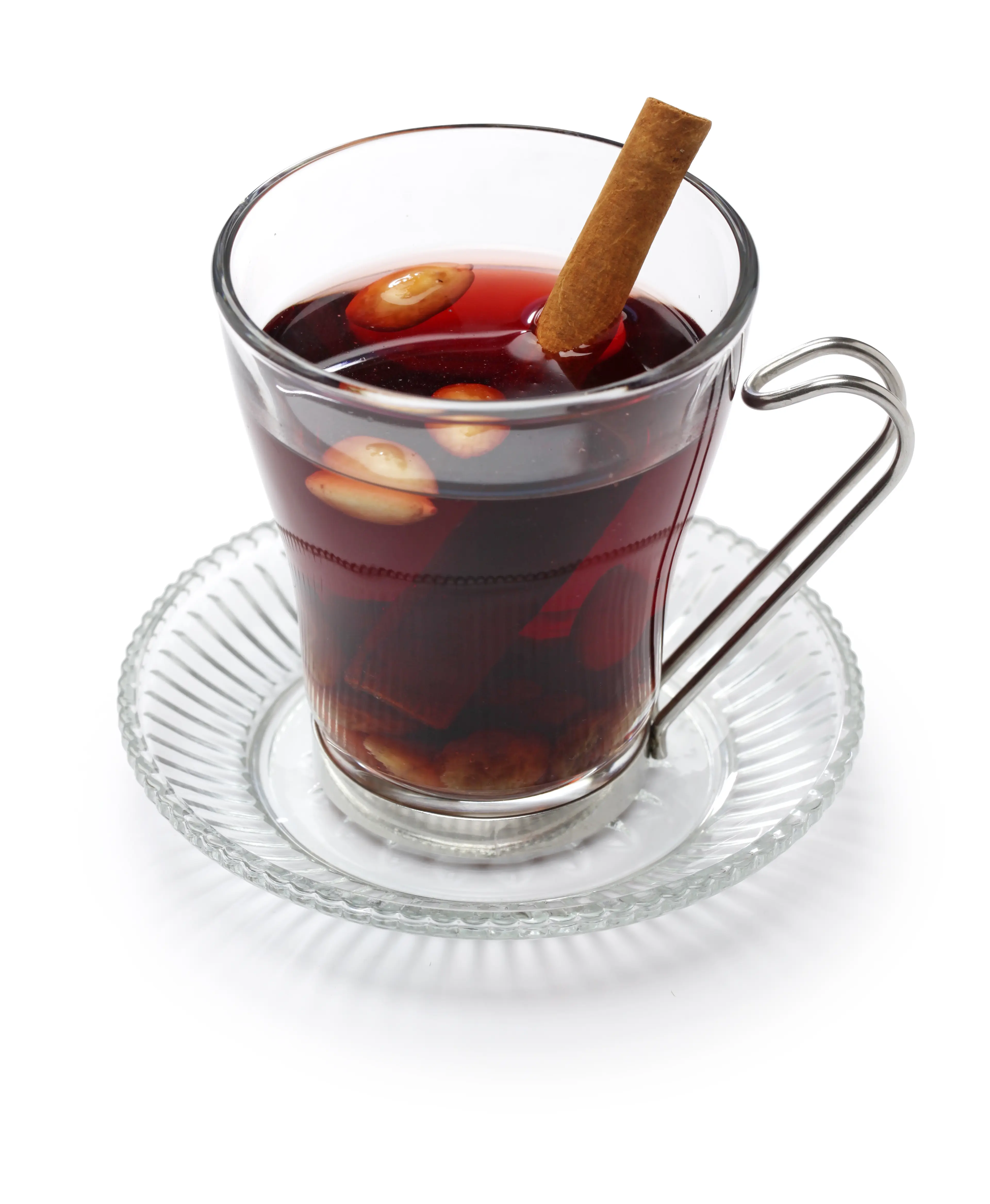
Glogg
A warm, spiced wine drink often enjoyed during the winter months in Copenhagen. It's similar to mulled wine and is typically served with raisins and almonds.
Best time to visit
The best time to visit Copenhagen, Denmark is during the late spring and summer months, specifically from May to August. During this period, the weather is generally warm and pleasant, with temperatures ranging from 15°C to 25°C (59°F to 77°F). This is also the time when the city is most vibrant, with numerous outdoor events, festivals, and open-air concerts taking place. The days are also the longest, allowing you to make the most of your sightseeing. However, if you prefer a quieter atmosphere, the shoulder seasons of April to June and September to October are also good times to visit, with fewer tourists and mild weather.
How to get around
By Foot
Copenhagen is a compact city and most of the popular tourist attractions are within walking distance from the city center. It's a great way to explore the city at your own pace and take in the beautiful architecture and scenery.
Bicycle
Copenhagen is known as one of the most bicycle-friendly cities in the world. There are plenty of bike rental shops around the city and dedicated bike lanes. It's a fast, eco-friendly, and healthy way to get around.
Public Bus
Copenhagen has an extensive bus network that covers the entire city and suburbs. Buses are frequent and reliable. They are a good option for reaching destinations that are not covered by the metro or train.
Metro
The Copenhagen Metro is a convenient way to travel around the city. It operates 24/7 and has four lines that cover most of the city and some suburbs. Stations are well-marked and trains are modern and clean.
Train
The S-train network is a great way to travel longer distances within the city and to the suburbs. It's also the best way to reach destinations like the Louisiana Museum of Modern Art and the city of Helsingør.
Taxi
Taxis are readily available throughout the city. They can be hailed on the street, picked up at taxi stands, or booked via phone or app. They offer a convenient, but more expensive, way to get around.
Ridesharing
Ridesharing services like Uber are available in Copenhagen. They offer a convenient way to get around the city, especially if you're traveling with a group or have a lot of luggage.
Boat
Copenhagen is a city of canals and a boat tour or a trip on the public water buses is a great way to see the city from a different perspective. Some routes even allow you to hop on and off at various tourist attractions.
Car Rental
Renting a car can be a good option if you plan to explore outside of Copenhagen. However, parking can be difficult and expensive in the city center, and the city's narrow streets and heavy bicycle traffic can make driving challenging.
Important information
Currencykr DKK
Time zoneUTC+1
Driving sideRight
Emergency phone112
Drinking waterYes
Power sockets
Voltage230 V
Things to know about Copenhagen, Denmark as a first time visitor
1
Copenhagen is the capital of Denmark and its most populous city.
2
The official language is Danish, but English is widely spoken.
3
The currency used is the Danish Krone (DKK). Credit cards are widely accepted, but it's always good to have some cash on hand.
4
Copenhagen is known for its biking culture. It's a great way to get around the city, and bike rentals are readily available.
5
The city is generally safe, but like any major city, it's important to be aware of your surroundings and keep an eye on your belongings.
6
The weather can be unpredictable. Summers are generally warm with temperatures ranging from 50°F to 70°F (10°C to 21°C), while winters can be cold with temperatures from 28°F to 39°F (-2°C to 4°C). Always check the forecast before your trip.
7
Copenhagen has a rich history and is known for its beautiful architecture, including many well-preserved 17th-century buildings.
8
The city is also known for its sustainability efforts and is one of the world's leading green cities.
9
Public transportation is efficient and reliable. The city has a comprehensive network of buses, trains, and metro lines.
10
Tipping is not mandatory in Denmark as service charges are usually included in the bill. However, it's common to leave a small tip for good service.
11
Copenhagen has a vibrant food scene. Be sure to try traditional Danish cuisine, such as smørrebrød (open-faced sandwiches) and frikadeller (meatballs).
12
The city is also known for its craft beer scene. Visit one of the many local breweries or beer bars.
13
Copenhagen has a high cost of living, so be prepared for higher prices, especially for dining and accommodation.
14
The city is pedestrian-friendly with many pedestrian streets and squares. It's a great city to explore on foot.
15
Copenhagen has a mix of old and new, with a blend of historic sites and modern design.
16
The city is located on the eastern coast of the island of Zealand, with numerous beaches and harbors.
17
Copenhagen has a vibrant nightlife, with many bars, clubs, and live music venues.
18
The city is also known for its many parks and green spaces, which are perfect for relaxing or having a picnic.
19
Copenhagen is a family-friendly city with many activities and attractions suitable for children.
20
The city is also a hub for fashion and design, with many boutiques and design stores.
Basic Danish to know as a first time visitor
English phrase | Native phrase | Pronunciation | When to use it |
|---|---|---|---|
Hello | Hej | hay | Greeting someone |
Goodbye | Farvel | far-vel | Leaving or saying goodbye |
Thank you | Tak | tahg | Showing appreciation |
Yes | Ja | yah | Agreeing or confirming |
No | Nej | nay | Disagreeing or denying |
Please | Vær så venlig | ver so ven-lee | Making a request |
Excuse me | Undskyld mig | oon-skul me | Getting attention or apologizing |
I don't understand | Jeg forstår ikke | yai for-stoar ik-ke | When you don't understand what was said |
Do you speak English? | Taler du engelsk? | tahler doo eng-elsk | Asking if someone speaks English |
I'm sorry | Jeg beklager | yai be-klah-er | Apologizing |
Where is the bathroom? | Hvor er toilettet? | vor er toy-let-et | Asking for directions |
How much does it cost? | Hvad koster det? | vad koster det | Asking the price of something |
I would like... | Jeg vil gerne have... | yai vil gerne have | Making a request or order |
Help! | Hjælp! | yelp | In an emergency or needing assistance |
Can I have the bill, please? | Kan jeg få regningen, tak? | kan yai foh reh-ning-en, tahg | Asking for the bill at a restaurant |
Cheers! | Skål! | skoal | Making a toast |
Good morning | God morgen | god morgen | Greeting someone in the morning |
Good night | God nat | god nat | Saying goodbye in the evening |
I'm lost | Jeg er fortabt | yai er for-tabt | When you're lost |
Where is...? | Hvor er...? | vor er | Asking for directions |
Packing List
Clothing
Underwear
Socks
T-shirts
Pants/Jeans
Comfortable walking shoes
Sweater or jacket
Pajamas
Scarf, gloves and hat (if winter)
Rain jacket or umbrella
Toiletries
Toothbrush and toothpaste
Deodorant
Shampoo and conditioner
Body wash or soap
Razor and shaving cream
Makeup and makeup remover
Hairbrush or comb
Prescription medications
First aid kit
Travel documents and essentials
Passport or ID
Airline tickets or e-ticket confirmation
Hotel reservation confirmation
Travel insurance documents
Credit and debit cards
Cash in local currency (Danish Krone)
Guidebook or map
Electronics and gadgets
Smartphone and charger
Headphones
Camera and charger
Power adapter (Denmark uses Type E/F plug)
Portable power bank
Miscellaneous items
Snacks for the journey
Travel pillow and blanket
Earplugs and eye mask
Reusable water bottle
Books or e-reader for entertainment
Travel-size laundry detergent
Plastic bags for dirty clothes
Weather Conditions
Copenhagen, Denmark, is known for its cool, temperate oceanic climate. The city experiences all four seasons, each with its unique charm and weather conditions. In the winter months, from December to February, temperatures can drop to as low as 32°F (0°C), and snowfall is common. It's essential to pack warm clothing, including a heavy coat, scarves, gloves, and hats. The daylight hours are short, so plan your outdoor activities accordingly. Spring, from March to May, sees milder temperatures ranging from 37°F to 59°F (3°C to 15°C). It's a beautiful time to visit as the city blooms with flowers. Pack a mix of light and warm clothing, as the weather can be unpredictable. Summer, from June to August, is the warmest season with temperatures ranging from 50°F to 72°F (10°C to 22°C). It's the best time to explore the city's outdoor attractions, like Tivoli Gardens and the Little Mermaid statue. Pack light clothing, but also include a light jacket or sweater for cooler evenings. Autumn, from September to November, sees temperatures drop from 59°F to 41°F (15°C to 5°C). The city is adorned with beautiful fall foliage, making it a picturesque time to visit. Pack warm clothing and a waterproof jacket, as rain is common during this period. Regardless of the season, Copenhagen's weather can be unpredictable, so it's always a good idea to check the forecast before your trip and pack accordingly. Also, remember that the city is known for its biking culture, so consider packing comfortable shoes and clothing suitable for cycling. Enjoy your visit to this charming Scandinavian city!
| Month | Hi / Lo (°C) | Weather Overview |
|---|---|---|
January | 4° / -1° | January is the coldest month in Copenhagen, so pack warm clothes. Snow is possible, but not guaranteed. |
February | 4° / -1° | February is still quite cold, with a chance of snow. The days start to get a bit longer. |
March | 8° / 1° | March sees the beginning of spring, with slightly warmer temperatures and more daylight hours. |
April | 15° / 3° | April is a pleasant month with the city coming to life. However, there can still be occasional cold snaps. |
May | 19° / 8° | May is a great time to visit, with mild temperatures and long days. The city's parks and gardens are in full bloom. |
June | 22° / 11° | June is the start of summer, with long, bright days. It's a great time for outdoor activities. |
July | 25° / 13° | July is the warmest month, perfect for enjoying the city's beaches and outdoor cafes. |
August | 25° / 13° | August is still quite warm, but with more rainfall. It's a good time to visit museums and indoor attractions. |
September | 20° / 10° | September is a pleasant month with fewer tourists. The weather is still good for outdoor activities. |
October | 15° / 7° | October sees the start of autumn, with cooler temperatures and beautiful fall colors. |
November | 10° / 4° | November is quite chilly, with shorter days. It's a good time to visit museums and indoor attractions. |
December | 7° / 1° | December is cold with short days, but the Christmas markets and festive lights make it a magical time to visit. |
Did you know?
Places near by Copenhagen, Denmark

Roskilde Cathedral
A UNESCO World Heritage Site, this cathedral is the burial site for Danish monarchs.

Kronborg Castle
Known as the setting of Shakespeare's Hamlet, this castle offers stunning views and rich history.

Louisiana Museum of Modern Art
This museum houses a vast collection of modern and contemporary art.

Malmö
A vibrant city in Sweden known for its modern architecture and beautiful parks.

Odense
The birthplace of Hans Christian Andersen, this city is filled with fairy-tale charm.

Aarhus
A city with a mix of modern architecture and historic charm, home to the ARoS Aarhus Art Museum.

Gothenburg
Sweden's second-largest city, known for its picturesque canals and trendy boutiques.

Stockholm
Sweden's capital, known for its beautiful archipelago and rich history.

Berlin
Germany's capital, known for its vibrant culture and rich history.

Oslo
Norway's capital, known for its green spaces and museums.
